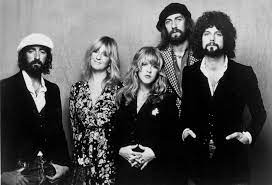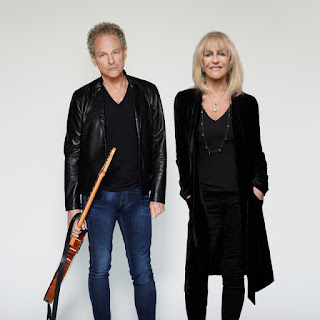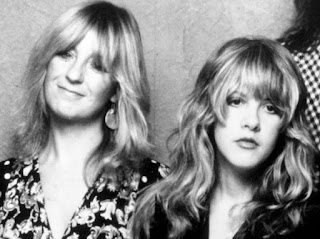.jpg) |
| Rab Noakes Oran Mor |
So sad to hear the news of our loss of singer songwriter Rab Noakes - what a true gent and legend of Scottish music. Rest in peace. I've had the privilege of taking Rab's photos at several concerts over many years since 2010.
I’ve had several chats with him over the past decade, both in person and online. I have such fond memories in my twenties we used to sing his early songs. More recently my son played an excellent version of his classic Gently Does It and Moonlight and Gold.
Rab was always a smartly dressed folk singer songwriter, and one of the top guitarist. He drew influences from the 60s radio growing up in Fife, much as his musical hero Bob Dylan did too. While he drew on many influences. The story of the song mattered to Rab, so his chat between songs laid the musical scene and atmosphere.
In the 60s and 70s, Rab played with greats such as Gerry Rafferty and Lindisfarne. When I hung out in the folk scene then, i remember well the harmony singing of Noakes songs, such as Branch, Clear Day, Together Forever. Back in 2007 I saw Noakes still going strong at an Oran Mor gig. He often includes a fifties classic, this time a song my husband remembered his mother singing. He is also a dedicated Dylan follower – check out his excellent version of Dylan’s Mississippi.
 |
| Martha Rafferty & Rab Noakes |
Noakes says music is all about the dialogue and more about performing than simply the song. Those residency night gigs were artists can learn their craft in front of the live audience and the live performance when 'flying' in the heart of the music toughens you up and you have to learn loads of songs. He played in Denmark six nights a week. Noakes ran his own production company Neon. Rab led several tribute concerts at Glasgow’s major music festival. Celtic Connections, for Gerry Rafferty and Michael Marra. I expect we will have a concert for Rab – it’s the passing of a whole generation of the folk scene – and we look forward to the passing of the baton to the younger generations.
He will be sadly missed, his music lives on and in my memories of my son playing his classic "Gently Does it" and Rafferty's "Moonlight and Gold".
.jpg) |
| Rab at Milngavie folk club |
He has been at the forefront of Scottish folk music for over 50 years, and has recorded over 19 studio albums. He often performed at the Glasgow music festival Celtic Connections. In 1970 Noakes released his first solo recording Do You See The Lights, a blend of easy going country rock, with a line-up that included Robin McKidd, electric guitar and jazz bassist Ronnie Rae, and included songs Too Old To Die, Together Forever and Somebody Counts On Me. In 1971 Noakes was a founding member of the folk rock band Stealers Wheel, along with Gerry Rafferty and Joe Egan, He played on the first album by Gerry Rafferty’s Can I Have My Money Back, notably Mary Skeffington. He also played with the band Stealers Wheel. Noakes songs have been covered by Lindisfarne (Together Forever) and Barbara Dickson.
I will post some extracts on his songwriting from my nine RAB NOAKES reviews.
 |
| Rab at a house party |
**RAB gig reviews on my blog
2010 - Oran Mor
2012 - Concert for Gerry Rafferty
2012 – Milngavie folk club
2013 - Concert for Michael Marra
2014 - tour Barbara Dickson
2016 - MFC
2017 – Celtic, Old Fruitmarket
2022 - MFC
 |
| Rab with Alice Marra Celtic Connections |
 |
| Eddi Reader, Rab Noakes, Dougie MacLean |
 |
| Rab & Kathleen McInnes |
.jpg) |
| Rab & Barbara Dickson |
 |
| Rab & Jill Jackson |
CHATS with RAB
A gentle, questioning soul – with a generosity of spirit.
I sat beside him at a couple of times at Celtic press release mornings. I told him of my sons guitar playing but that he lacked confidence, Rab said in his young days, performers laid the ground work playing the folk clubs for years – but today people seem to often expect quick, instant results. I told him my son enjoyed playing some of the folk tunes, particularly Gently Does It – I had taken my son to our local folk club to see Gaughan, Noakes, Dylan at Braehead Arena. My son also enjoyed rock and pop and learned electric guitar and bass from the rock band the Red Hot Chillis!
CHATS with Rab at Celtic
I sat beside Rab at the Celtic Press launch on Tuesday. He seemed to know me - maybe from his Oran Mor gig, my review and photos for him and his chatting to me on facebook. Cool and what an interesting guy.
He’s a massive Dylan fan too! I asked him if he mentored younger artists – he said no he wasn’t going to simply give his secrets away! He said that too many young people expected things on a plate, and that they were spoon-fed everything. He had to put in years of graft to learn his craft and he thought that was the way things should be done. He mentioned all these music schools now where they are simply ‘given’ everything rather than finding out for themselves.
I agree. I worry so many young artists in the folk scene for instance have less depth of character in their voice. He said he enjoyed the thread on FB chat with me - interesting thread he said! I told him how interesting the book festival is, and that many authors are also painters and musicians too. I spoke of the Dylan ‘Forever Young’ photos, probably my favourite of an artist. He remarked that Dylan had so much character he must be good for photos. And I told him of the Chinese writer who when he paints only listens to music for weeks and tries not to think in words at all.
*On Facebook I posted – “The best music is timeless’
Rab replied, ‘No, the best music is very much of its time, and that a present with no past has no future.’
Noakes was born in St Andrews Fife in 1947 and grew up in Cupar. He drew influences from the 60s Radio growing up in Fife, much as his musical hero Bob Dylan did too. While he drew on many musical influences. In 1963 Noakes moved to London and worked for the Civil Service, and he played folk clubs at night. He returned to Scotland in 1967 and began a duo with Robin McKidd and they played their first gig at the Glasgow Folk centre. In 1769 he played a months residency in Denmark. Noakes was a founding member of the folk rock band Stealers Wheel, along with Gerry Rafferty and Joe Egan.
In 1970 Noakes released his first solo recording Do You See The Lights, a blend of easy going country rock, with a line-up that included Robin McKidd, electric guitar and jazz bassist Ronnie Rae, and included songs Too Old To Die, Together Forever and Somebody Counts On Me.
He played on the first album by Gerry Rafferty’s Can I Have My Money Back in 1971, notably Mary Skeffington. He also played with the band Stealers Wheel. He performed with Lindisfarne in 1972, on songs Turn a Deaf Ear, Nicely out of Tune, Together Forever, and Fog on the Tyne. He recorded with Lindisfarne for a John Peel concert and in 1995 produced a Radio 2 programme The Story of Lindisfarne.
One of Noakes's best-known recordings, "Branch", from the Red Pump Special album, was released as a single in 1974 (recorded in Nashville Tennessee and produced by Elliot Mazer) and received Radio One airplay. He played on a Woody Guthrie tribute album 1987, and toured with the Veraflames – along with Pick Withers, Rod Clements and Fraser Speirs.
 |
| Rab & Gerry Rafferty |
 |
| Rab & Stealers Wheel |





.jpg)



.jpg)





.jpg)








